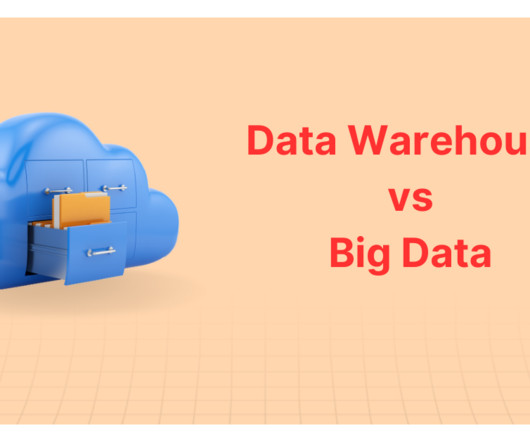Data Warehouse vs Big Data
Knowledge Hut
APRIL 23, 2024
Data warehouses are typically built using traditional relational database systems, employing techniques like Extract, Transform, Load (ETL) to integrate and organize data. Data warehousing offers several advantages. By structuring data in a predefined schema, data warehouses ensure data consistency and accuracy.












Let's personalize your content